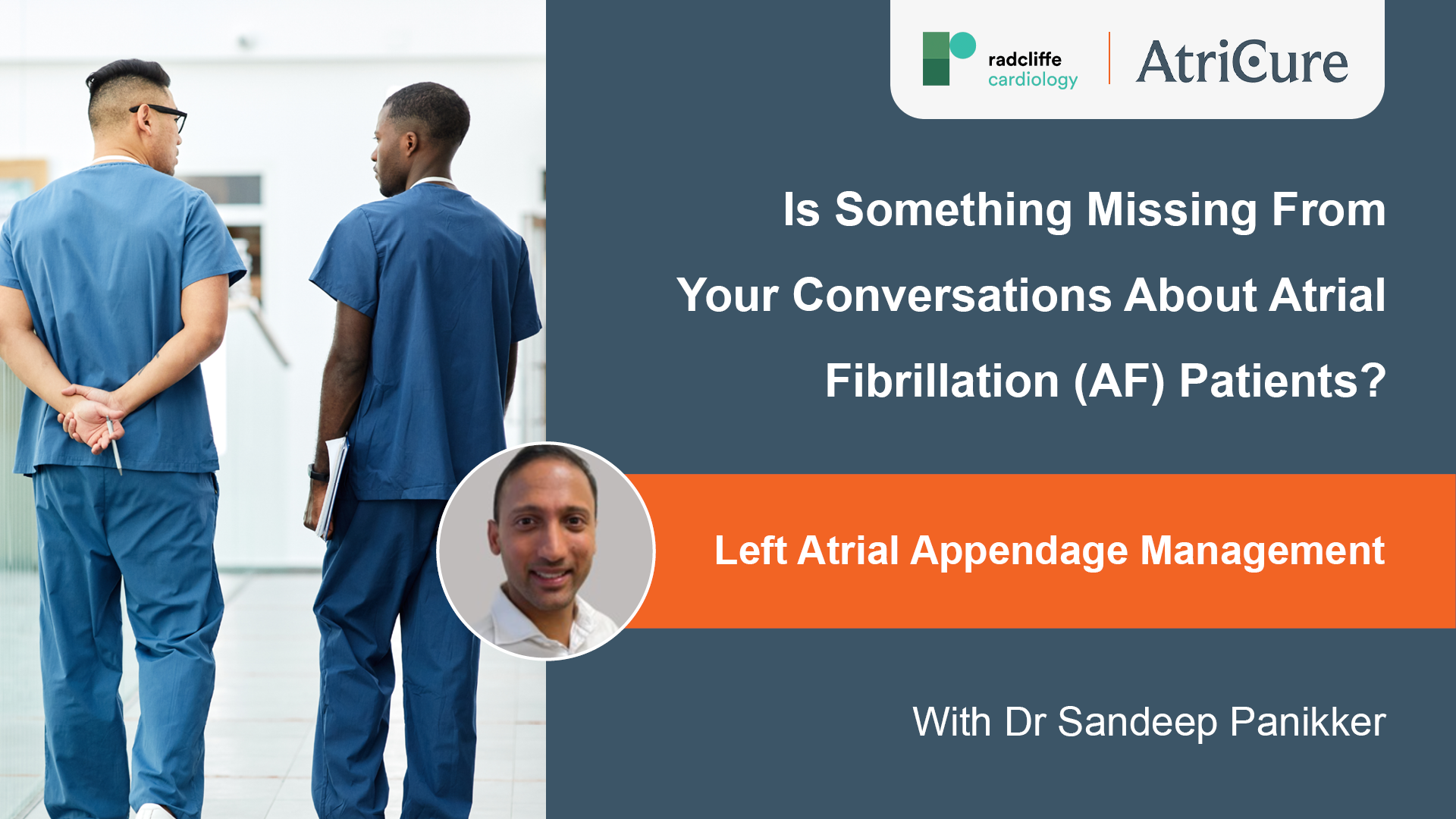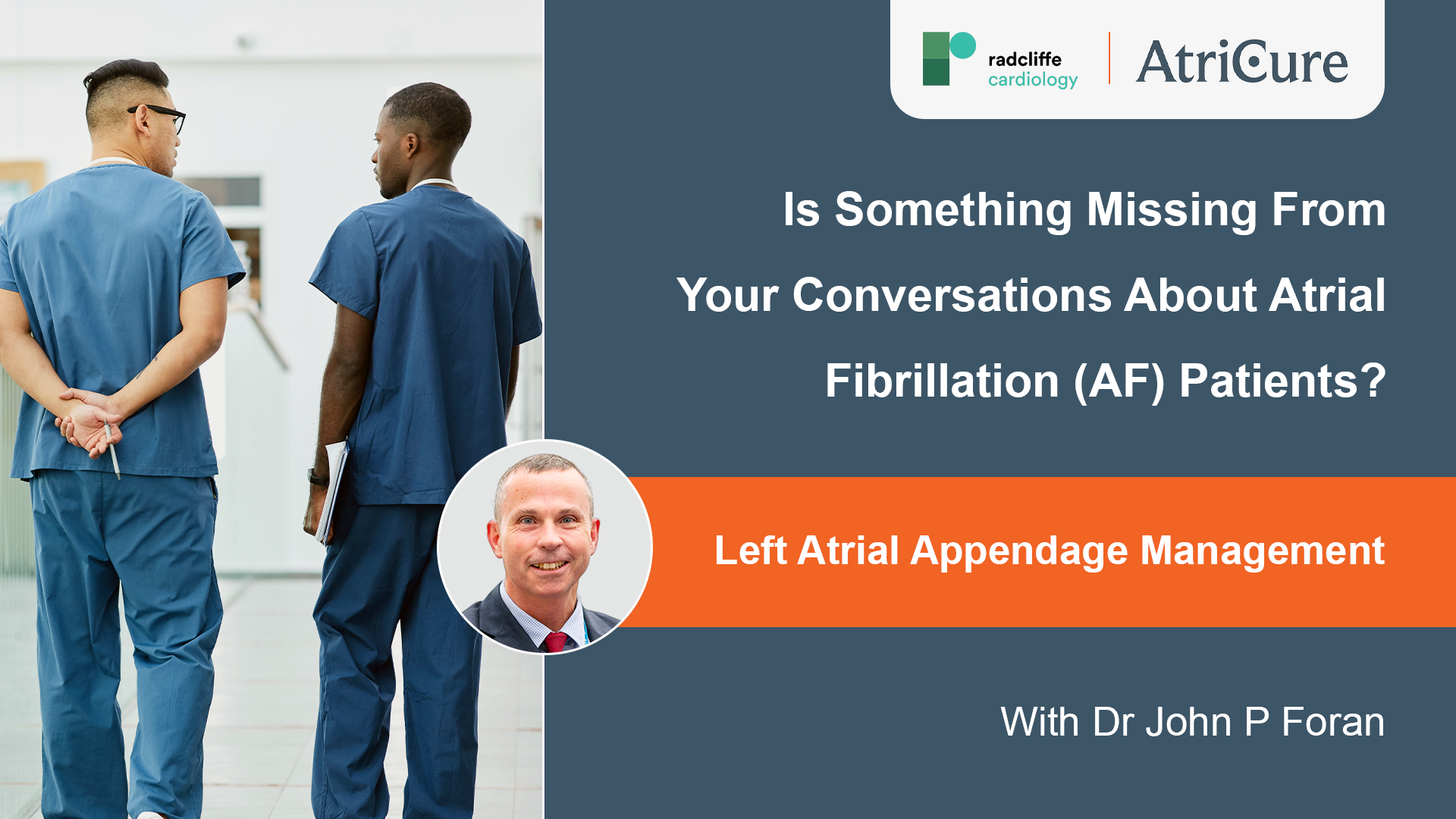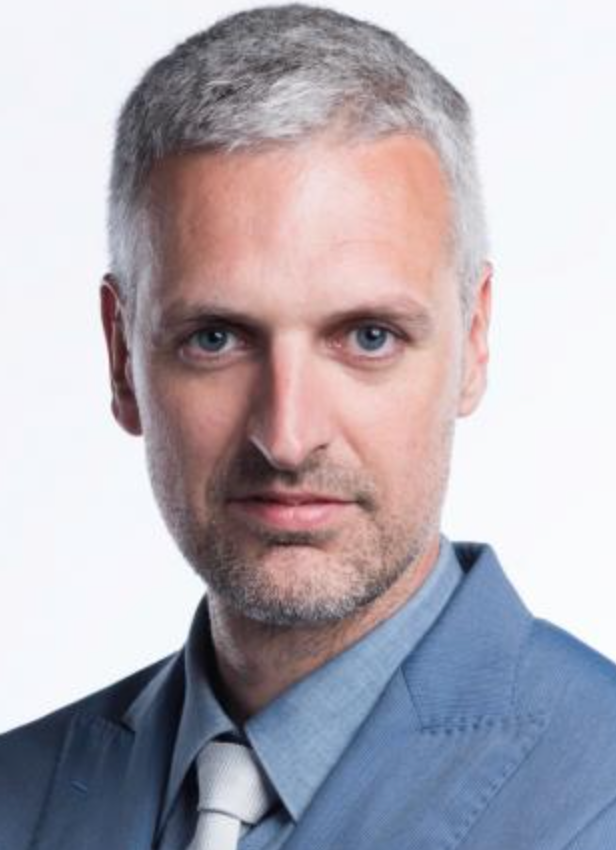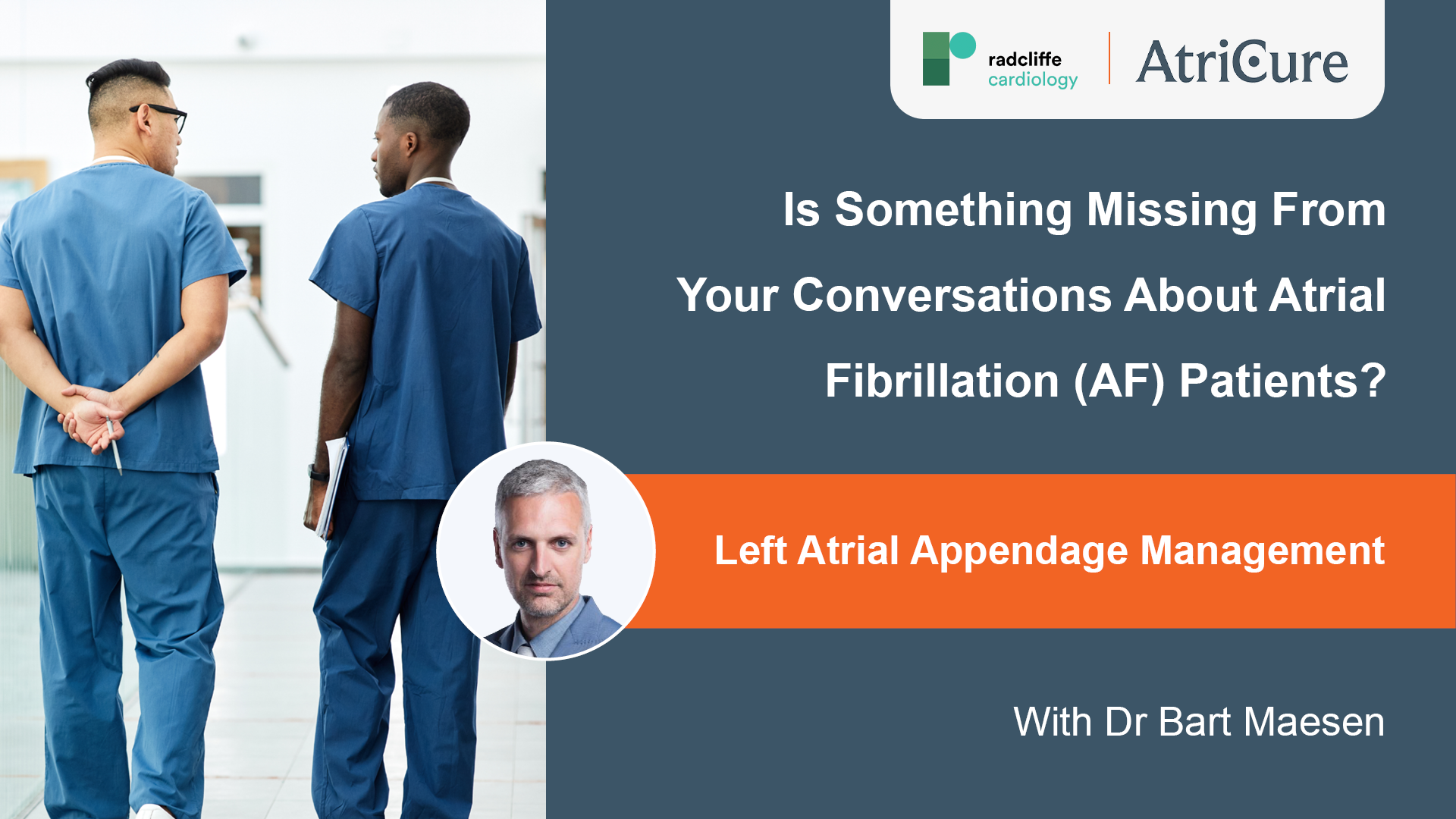Is Something Missing From Your Conversations About Atrial Fibrillation (AF) Patients?
Published: 19 October 2022
-
Views:
 2025
2025
-
Likes:
 7
7
-
Views:
 2025
2025
-
Likes:
 7
7
-
 2m 33sPart 1 | Session 1 Dr Sandeep Panikker – University Hospitals Coventry and Warwickshire, Coventry UK Sandeep Panikker
2m 33sPart 1 | Session 1 Dr Sandeep Panikker – University Hospitals Coventry and Warwickshire, Coventry UK Sandeep Panikker
-
 2m 26sPart 1 | Session 2 Dr John P Foran – Royal Brompton Hospital, London, UK John P Foran
2m 26sPart 1 | Session 2 Dr John P Foran – Royal Brompton Hospital, London, UK John P Foran
Overview
Complete LAA exclusion (LAAE) should always be part of any discussion about management of AF patients undergoing cardiac surgery.
And here’s why…
- Thrombus in the LAA is believed to be the primary cause of stroke in AF patients1-3
- LAAE has been shown to reduce stroke and bleeding risk1,4-6,9
- Expert consensus supports the use of LAAE during concomitant cardiac surgery1,7,8
When you have 100% of the conversation, and always consider addressing the left atrial appendage as part of concomitant surgery, it can have a positive impact on a patient’s quality of life.
Hear what other Cardiologists and Cardiac Surgeons think about LAA exclusion (LAAE).
• Dr Sandeep Panikker, Consultant Cardiologist and Electrophysiologist, University Hospitals Coventry and Warwickshire, Coventry UK
• Dr John Foran, Consultant Cardiologist, Royal Brompton Hospital, London, UK
• Dr Bart Maesen, Cardiothoracic Surgeon, Maastricht University Medical Center, Maastricht, NL
Visit LAAConversation.com to learn more and to access a concise downloadable resource that you can use to support your conversations with surgeons.
Also included on LAAConversation.com is a summary of the LAAOS III randomised control trial results showing that concomitant LAA exclusion (LAAE) improves outcomes compared with no-LAAE in AF patients.
References:
1. Glikson M, Wolff R, Hindricks G, et al. EHRA/EAPCI expert consensus statement on catheter-based left atrial appendage occlusion – an update. EuroIntervention 2020;15:1133–80.
2. Hanke T. Surgical management of the left atrial appendage: a must or a myth? Eur J Cardiothorac Surg 2018;53(suppl_1):i33–8.
3. Johnson WD, Ganjoo AK, Stone CD, et al. The left atrial appendage: our most lethal human attachment! Surgical implications. Eur J Cardiothorac Surg 2000;17:718–22.
4. van Laar C, Verberkmoes NJ, Es HW, et al. Thoracoscopic left atrial appendage clipping. JACC: Clinical Electrophysiology 2018;4:893–901.
5. Friedman DJ, Piccini JP, Wang T, et al. Association Between Left Atrial Appendage Occlusion and Readmission for Thromboembolism Among Patients With Atrial Fibrillation Undergoing Concomitant Cardiac Surgery. JAMA 2018;319:365–74.
6. Yao X, Gersh BJ, Holmes DR, Jr., et al. Association of Surgical Left Atrial Appendage Occlusion With Subsequent Stroke and Mortality Among Patients Undergoing Cardiac Surgery. JAMA 2018;319:2116–26.
7. Badhwar V, Rankin JS, Damiano RJ, Jr., et al. The Society of Thoracic Surgeons 2017 Clinical Practice Guidelines for the Surgical Treatment of Atrial Fibrillation. Ann Thorac Surg 2017;103:329–41.
8. Writing Group M, January CT, Wann LS, et al. 2019 AHA/ACC/HRS focused update of the 2014 AHA/ACC/HRS guideline for the management of patients with atrial fibrillation: A Report of the American College of Cardiology/American Heart Association Task Force on Clinical Practice Guidelines and the Heart Rhythm Society. Heart Rhythm 2019;16:e66–93.
9. Whitlock RP, Belley-Cote EP, Paparella D, et al. Left Atrial Appendage Occlusion during Cardiac Surgery to Prevent Stroke. N Engl J Med 2021;384:2081–91.

More from this programme
Faculty Biographies

Bart Maesen
Cardiothoracic Surgeon
Dr Bart Maesen is a Cardiothoracic Surgeon at Maastricht University Medical Center, Maastricht, NL.
He studied medicine at the University of Antwerp, Belgium and obtained a research position to conduct research on ischaemia/reperfusion injury following his graduation.
He started his training in Cardiothoracic surgery with a 4 years fellowship at the electrophysiology lab of Prof Maurits Allessie and Prof Ulli Schotten in 2006.
Based on the research performed in this period, he obtained his PhD with a thesis on structure-function relationships of atrial fibrillation waves in goat and man. During his surgical traineeship he was trained in arrhythmia surgery by Prof Mark LaMeir.
He is setting up a translational research program with focus on improving outcome in surgical AF management by better understanding of basic mechanisms and concepts. He supervises several PhD students and helps other centers to start their own AF…






